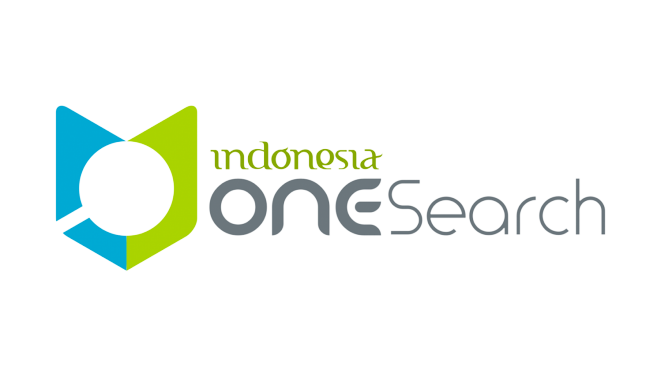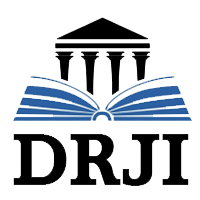Pengembangan Sistem Pengelolaan Sampah Berbasis Cloud Computing SAAS untuk Optimalisasi Pengelolaan Lingkungan Berkelanjutan
Sari
Kata Kunci
Teks Lengkap:
Download PDFReferensi
E. Hidayat, “Strategi Pengelolaan Sampah Sebagai Upaya Peningkatan Pengelolaan Sampah Di Era Otonomi Daerah,” Asas, vol. 12, No. 02, no. 1, pp. 69–80, 2020.
D. R. Kurniawati, “Kelola Sampah Dari Sumbernya: Upaya Menanggulangi Salah Satu Dampak Pertumbuhan Penduduk,” Pros. Semin. Kesehat. Nas. Sexophone, vol. 2, pp. 30–38, 2022.
S. N. Meirizha, A. Mulyadi, and N. Z. Indra, “Model System Dynamics untuk Pengelolaan Sampah Padat Perkotaan di Kota Pekanbaru,” J. Media Tek. dan Sist. Ind., vol. 9, no. 1, p. 14, 2025, doi: 10.35194/jmtsi.v9i1.4502.
A. D. W. I. Januari, N. Rusdayanti, S. Kardian, and S. Shara, “Urbanisasi Jakarta dan dampaknya terhadap sosial ekonomi dan lingkungan,” Sustain. Transp. Urban Mobil., vol. 1, no. 1, pp. 21–37, 2024, [Online]. Available: https://journal-iasssf.com/index.php/STUM/article/view/448/471
Akhirul, Y. Witra, I. Umar, and Erianjoni, “Dampak Negatif Pertumbuhan Penduduk Terhadap Lingkungan Dan Upaya Mengatasinya,” J. Kependud. dan Pembang. Ligkungan, vol. 1, no. 3, pp. 76–84, 2020.
S. Kaza, L. Yao, P. Bhada-Tata, and F. Van Woerden, What a waste 2.0 a global snapshot of solid waste management to 2050. World Bank Publications, 2018.
Kezya and I. Marcella, “Tanggung Jawab Pemerintah Daerah Kota Tangerang dalam Menanggulangi Kerusakan Lingkungan Akibat Sampah Rumah Tangga,” J. ISO J. Ilmu Sos. Polit. dan Hum., vol. 5, no. 1, p. 10, 2025, doi: 10.53697/iso.v5i1.2396.
D. Anggriani, B. Purba, I. J. Saragih, S. Aisyah, and W. Anzani, “Analisis Efek Sampah Rumah Tangga Terhadap Pencemaran Lingkungan di Kota Medan,” EKOMA J. Ekon. Manajemen, Akunt., vol. 4, no. 1, pp. 187–192, 2024, doi: 10.56799/ekoma.v4i1.5532.
K. Meidarlin Pasaribu, W. Damanik, N. Ulina Tampubolon, A. Lorenza Parapat, and K. Theodora Br Purba, “Edukasi Pengelolaan Sampah Organik untuk Peningkatan Kesehatan di Desa Bandar Tengah,” vol. 5, no. 1, pp. 2807–6907, 2025.
A. Axmalia and S. A. Mulasari, “Dampak Tempat Pembuangan Akhir Sampah (TPA) Terhadap Gangguan Kesehatan Masyarakat,” J. Kesehat. Komunitas, vol. 6, no. 2, pp. 171–176, 2020, doi: 10.25311/keskom.vol6.iss2.536.
Ageng S. Kanda and Citra Puspita Sari, “Analisis Permasalahan Dan Kebijakan Penanggulangan Sampah di Daerah Pajajaran Kota Bandung,” Sammajiva J. Penelit. Bisnis dan Manaj., vol. 2, no. 1, pp. 61–69, 2024, doi: 10.47861/sammajiva.v2i1.772.
E. Satriani et al., “INSOLOGI: Jurnal Sains dan Teknologi Studi Literatur: Pencemaran TPA Air Sebakul dan Pemanfaatan Sampah Organik Rumah Tangga dengan Biogas,” Media Cetak, vol. 4, no. 3, pp. 354–366, 2025, doi: 10.55123/insologi.v4i3.5336.
D. Hoornweg and P. Bhada-Tata, “What a waste: a global review of solid waste management,” 2012.
A. Sánchez-Sotano, A. Cerezo-Narváez, F. Abad-Fraga, A. Pastor-Fernández, and J. Salguero-Gómez, “Trends of digital transformation in the shipbuilding sector,” in New Trends in the Use of Artificial Intelligence for the Industry 4.0, IntechOpen, 2020.
E. Barus, K. M. Pardede, and J. A. Putri Br. Manjorang, “Transformasi Digital: Teknologi Cloud Computing dalam Efisiensi Akuntansi,” J. Sains dan Teknol., vol. 5, no. 3, pp. 904–911, 2024, doi: 10.55338/saintek.v5i3.2862.
DOI: https://doi.org/10.24176/sitech.v8i1.15502
Refbacks
- Saat ini tidak ada refbacks.











